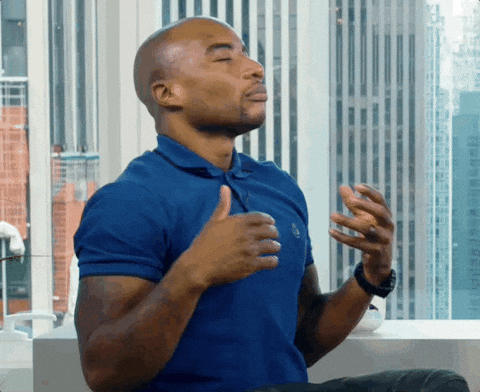#34: Assertiveness Part 1: Why Every Breakthrough Leader Masters This Trait
The leadership skill that separates high performers from everyone else
Have you ever been in a situation where you share an idea in a high-level meeting, and it doesn't gain traction, but in the same or a later meeting someone else shares THE SAME idea and it gets taken up?
The truth is you probably need to work on assertiveness. It's a language, and you can learn to speak it.
I've coached purists who want to let their ideas fight for themselves. Unfortunately, that's not the world we live in. You need to speak the language - it has to be authentic and you, and communicated in a way that influences and lands.
The €50 Million Lesson
Last month, I coached a VP of Medical Affairs at a major pharmaceutical company. Let's call her Sarah. She'd watched three product launches underperform because the commercial team consistently overpromised to regulators whilst the clinical data suggested a more cautious approach.
Sarah knew the pattern. She had the expertise. But she stayed quiet in meetings, deferring to "commercial priorities" and avoiding conflict.
The fourth launch? Different story. Sarah had developed what I call her "Narrative of Authority" - her professional story that established why her voice mattered. When the commercial team again pushed aggressive timelines, Sarah didn't shout them down. Instead, she said:
"Having led medical strategy for three therapeutic areas over eight years, I've seen this pattern before. The clinical data suggests we need an additional six months for safety monitoring, or we risk a regulatory setback that could cost us market access."
The room listened. The timeline adjusted. The launch succeeded, generating €50 million more revenue than projected because they avoided the costly regulatory delays that had plagued previous products.
Sarah didn't become more aggressive. She became more assertive.
The Assertiveness Research
Here's what the data tells us about assertiveness in leadership:
The Harvard Business School Study: Researchers tracked 2,400 executives over five years. Those who scored highest on "assertive communication" metrics achieved 67% better performance outcomes and received 43% more promotions.
The Pharmaceutical Leadership Research: A 2023 study of 800 pharma leaders found that assertive leaders were three times more likely to successfully navigate regulatory challenges and twice as likely to lead successful cross-functional teams.
But here's the crucial finding: assertiveness isn't about volume or aggression. It's what I define as "Confidently Expressed Clarity."
The research shows three core components:
Authority establishment - Why should people listen to you?
Clear communication - What exactly needs to happen?
Confident delivery - How do you express this with gravitas?
Most pharma leaders excel at the technical aspects but struggle with authority establishment. They know their science, understand their data, but can't command the room when it matters.
Building Your Authority Foundation
Authority isn't assigned at birth or given with your job title. It's a story you tell about yourself - what I call your "Narrative of Authority."
The Framework:
Hard Won Lessons: What experience gives you unique insight?
"Having managed five Phase III trials across three therapeutic areas..."
"After navigating four regulatory submissions..."
"Through leading commercial launches in 12 markets..."
Think Malcolm Gladwell's 10,000-hour rule, but applied to your specific domain. YouTuber Drew Binsky visited every country in the world - his hard-won lesson? "I've learned that human connection transcends every cultural barrier." Your version might be: "Having led patient recruitment across 23 countries, I've seen that trust-building follows the same principles everywhere."
Daring Challenge: What mission drives your expertise?
"I'm working to reduce drug development timelines by 30% without compromising safety"
"My focus is bringing innovative therapies to underserved patient populations"
"I specialise in turning around underperforming clinical programmes"
This is your personal moonshot. Drew Binsky's was visiting every country by age 30. Yours might be: "I'm on a mission to eliminate preventable clinical trial failures through better protocol design."
Uncommon Perspective: What do you see differently?
"I believe patient centricity starts with clinical trial design, not marketing"
"Most leaders focus on speed, I focus on sustainable scale"
"While others optimise for approval, I optimise for real-world effectiveness"
Think Steven Pinker's contrarian optimism - whilst everyone focuses on how the world is getting worse, he argues: "The world has made spectacular progress in every single measure of human well-being." Your contrarian view might be: "While others see regulatory requirements as obstacles, I see them as safeguards that actually help drugs succeed in the real world."
Example from my own practice: "Having coached over 300 senior pharma leaders and their teams across 25,000 hours of high-performance coaching, I've supported a senior leader from every major pharmaceutical function - from clinical development to commercial, regulatory to medical affairs. My daring challenge? To coach a senior pharma leader and their team in every country with over 10 million population. This gives me an uncommon perspective: I see leadership challenges before they become industry trends."
Practical Application: The 48-Hour Authority Audit
This week, conduct your own authority assessment:
Day 1: Document your unique expertise
List your most significant professional achievements
Identify patterns in problems you solve
Note what colleagues ask your advice about
Day 2: Craft your narrative
Write your "Hard Won Lessons" statement
Define your "Daring Challenge"
Articulate your "Uncommon Perspective"
Implementation: Practice introducing yourself with your narrative in low-stakes situations first - virtual coffee meetings, team check-ins, industry networking events.
Remember: You're not bragging. You're providing context for why your perspective matters.
💡 Need help building your narrative? I've created an interactive Authority Narrative Builder that guides you through each element with pharmaceutical examples and generates your complete professional story. Access the free tool here.
Workplace Wellbeing: The Stress Connection
Here's something most leadership development misses: assertiveness directly impacts your physiological health.
A University of Rochester study found that people who suppress their authentic voice in professional settings show elevated cortisol levels equivalent to chronic stress conditions. The pharmaceutical industry, with its complex hierarchies and high-stakes decisions, creates perfect conditions for voice suppression.
The solution isn't meditation or yoga (though they help). It's developing the confidence to express your professional perspective clearly and respectfully.
When you know your narrative of authority, your nervous system relaxes. You're not fighting internal conflict between what you know and what you're saying. This reduces stress, improves decision-making, and builds the calm confidence that others recognise as leadership presence.
Secret Diary of a VP
"For fifteen years, I prided myself on being the 'rational one' in leadership meetings. Never emotional, always data-driven, completely logical. I thought that's what made me credible as a female VP in regulatory affairs.
But here's what I didn't realise: my rationality was making me invisible.
Keep reading with a 7-day free trial
Subscribe to The Friday Pharma Leadership Club to keep reading this post and get 7 days of free access to the full post archives.










